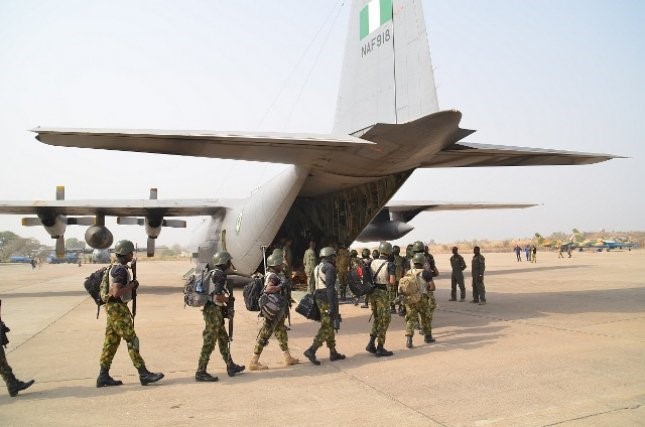ECOWAS Extends Mission in Gambia To Protect Democracy

At the 157th Heads of State Summit in Niamey, Niger Republic, on September 7, 2020, leaders of the Economic Community of West African States (ECOWAS) extended the mandate of ECOWAS Mission in the Gambia (ECOMIG) to help protect democracy and push military reforms but a critic says the approval is not necessary.
The decision of the sub-regional leaders was based on the request of Gambia’s President Adama Barrow.
In March, Barrow relieved LT.-Gen. Masanneh Kinteh of his duties as the Chief of Defense Staff of The Gambian Armed Forces and appointed then Deputy Chief of Defense Staff, Maj-.-Gen. Yakuba A. Drammeh.as his replacement.
ECOWAS set up ECOMIG in January, 2017 to restore democracy and facilitate a change of leadership after a turbulent political crisis due to former president Yahya Jammeh’s refusal to relinquish power and end his over two decades authoritarian rule of The Gambia.
The mission’s mandate was extended and expanded to a peace support operation to enable reforms and protect the country’s fragile democracy as requested by the president.
Barrow had informed his regional counterparts in his address of the importance of extending the mandate of the mission, which expired on June 30, 2020.
“Given the reforms underway and the need to protect the fragile democracy in The Gambia, I avail myself this privilege to request for the extension of the mandate of ECOMIG in The Gambia.
“It should be noted that our Security Sector Reform is at an advanced stage and, for the first time, an audit exercise has been conducted in the army and a policy developed,” he said.
“The reform process remains sensitive,” Barrow added, noting that the previous government moulded the security apparatus of the country to serve as a repressive mechanism.
On January 19, 2017, Barrow, the winner of the presidential election held on December 1, 2016, was sworn into office while in exile in The Gambian Embassy in Senegal.
Diplomatic efforts and the deployment of ECOMIG forces, comprising Senegalese troops supported by Ghanaian troops and the Nigerian Air Force, Naval and Special forces finally prompted Jammeh to relinquish power paving way for the return of Barrow on January 26, 2017 to assume office.
While extending the mission by six months, the ECOWAS advised authorities in the country to accelerate security and electoral reforms.
Also, the African Union’s Peace and Security Council on August 28 urged the government of The Gambia to implement the National Security Policy, National Security Strategy and Security Sector Reform Strategy and ratify all legal instruments relating to human rights to consolidate current national efforts aimed at safeguarding security and the rights of citizens.
However, in an interview with HumAngle, Kemo Bojang, the National Secretary-General of The Gambia’s United Democratic Party Youth Wing, said he did not think the ECOWAS mission was sustainable or the best at the moment considering the security situation in the country.
Bojang, who is also a local government legislator in the municipality of Kanifing, said: “I think what the Commander-in-Chief (C-in-C) should have done once he was sworn in as president was to work with the national army to build confidence in their C-in-C, which he didn’t do.’’
Bojang said the extension was unnecessary as there was no more need for peacekeeping in the country.
He said failure to achieve proposed security reforms led to the current position, adding: “It is worrisome that reforms that were supposed to happen after Jammeh have still not taken place.”
Support Our Journalism
There are millions of ordinary people affected by conflict in Africa whose stories are missing in the mainstream media. HumAngle is determined to tell those challenging and under-reported stories, hoping that the people impacted by these conflicts will find the safety and security they deserve.
To ensure that we continue to provide public service coverage, we have a small favour to ask you. We want you to be part of our journalistic endeavour by contributing a token to us.
Your donation will further promote a robust, free, and independent media.
Donate HereStay Closer To The Stories That Matter




